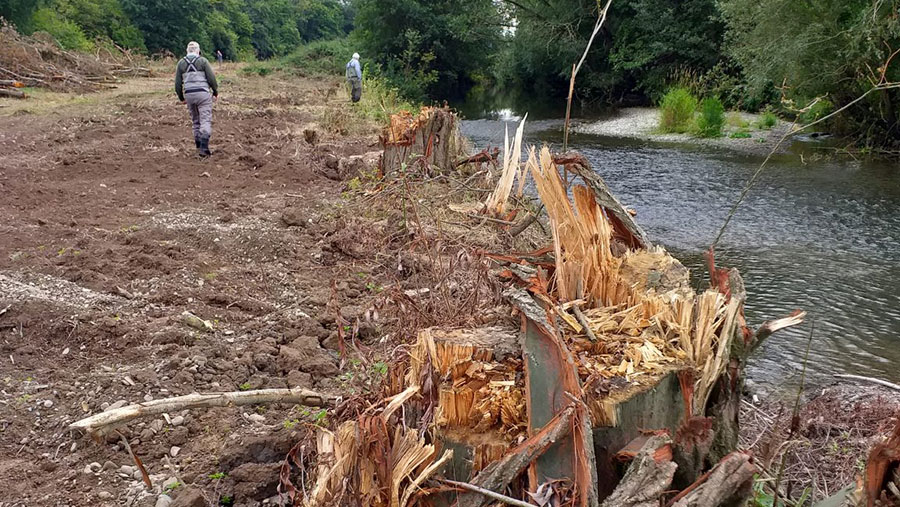Natural England takes action over River Teme tree removal
 Tree removal on the river Teme © Fish Legal
Tree removal on the river Teme © Fish Legal A landowner must restore a stretch of the River Teme in Herefordshire after he removed trees and bankside vegetation without permission.
Anglers reported the work to Natural England in August this year and the government body launched an investigation.
See also: Farmer pleads guilty to damaging River Lugg
Environment campaign group Fish Legal raised concerns about the work, which anglers said involved using heavy machinery to clear trees and vegetation from a stretch of the river.
The river flows through north Herefordshire for part of its length and is protected as a site of special scientific interest.
A spokesperson for Fish Legal said: “The mature trees that have been removed will take decades to recover and no longer provide the bank stability, habitat and shading for all manner of aquatic species.
“Like most UK rivers, the Teme is in a precarious state. Any work on the bank needs to be done sensitively and be fully consented by Natural England and the Environment Agency.”
Natural England confirmed the work had been carried out without permission and it was taking action against the landowner.
A Natural England spokesperson said: “Natural England is aware of the unauthorised works on the River Teme and is working with the landowner to agree and implement a full restoration plan to the area that has been damaged.
“The landowner has acknowledged the work was unconsented and says he will do what restoration is required, which is already under way.”
River Lugg
Earlier this year, Herefordshire farmer John Price pleaded guilty to damaging the protected River Lugg after a high-profile investigation by Natural England and the Environment Agency into unauthorised river maintenance work.
Mr Price, who owns land either side of the protected river, admitted several offences carried out between 1 and 30 November 2020 which were contrary to the Wildlife and Countryside Act 1981 and Environmental Permitting Regulations.
These included modification of riverbanks, use of vehicles to damage riparian habitats or disturb species of interest, without prior consent.
